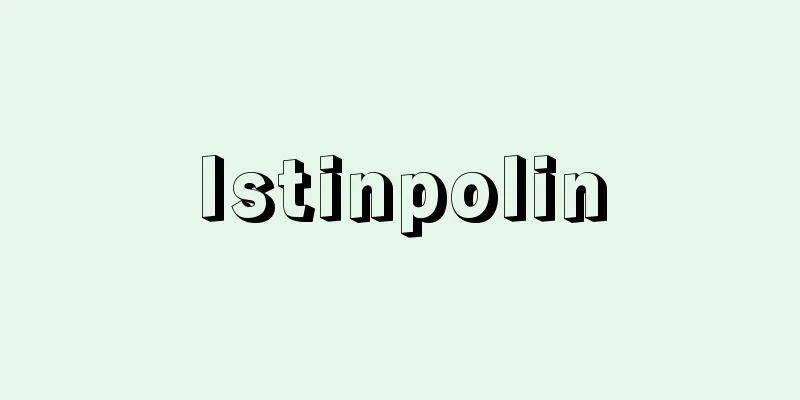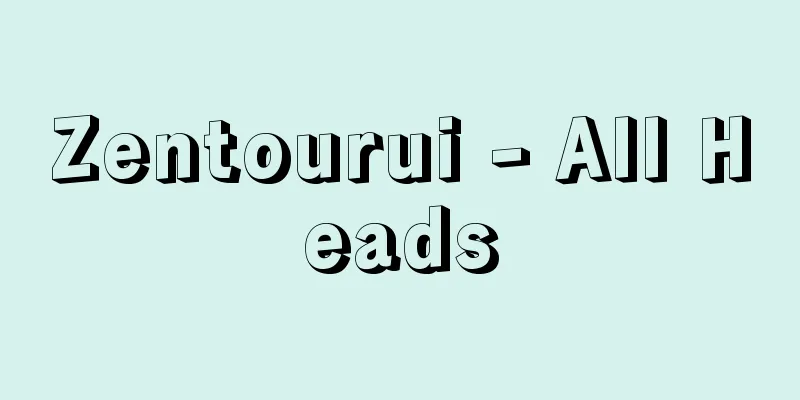Istinpolin

|
… On May 29, 1453, after more than 40 days of fierce fighting, the Ottoman army breached the city walls and entered the city, bringing the Byzantine Empire to an end. The Ottoman Sultan Mehmed II immediately made the city the new capital of his empire, renamed it Istanbul (from the Greek Istinpolin, meaning "to the city"), and had the Hagia Sophia converted into a mosque (now the Aya Sophia). The Sultan then began the reconstruction of the new capital, first guaranteeing the safety of the lives and property of the former citizens who had remained in the city after the conquest, and forcibly relocating wealthy merchants and craftsmen, including Turks, Greeks, Armenians, Jews, Bulgarians, and Serbs, who lived in Anatolia and the Balkans. … *Some of the terminology that mentions "Istinpolin" is listed below. Source | Heibonsha World Encyclopedia 2nd Edition | Information |
|
… 1453年5月29日,40日余の激戦の末,オスマン帝国軍は市壁を破って入城し,ビザンティン帝国は滅亡した。オスマン帝国のスルタン,メフメト2世は,ただちにこの町を帝国の新しい首都とするとともに,その名をイスタンブル(ギリシア語で〈町へ〉を意味するイスティンポリンIstinpolinに由来する)と改名し,ハギア・ソフィアをモスクに改築(現,アヤ・ソフィア)させた。スルタンは,これにつづいて新首都の再建事業に乗り出し,まず征服後市内にふみとどまった旧市民の生命・財産の安全を保証するとともに,アナトリアとバルカン領土内に住むトルコ人,ギリシア人,アルメニア人,ユダヤ人,ブルガリア人,セルビア人などの富裕な商人や職人を強制的に移住させた。… ※「Istinpolin」について言及している用語解説の一部を掲載しています。 出典|株式会社平凡社世界大百科事典 第2版について | 情報 |
Recommend
Emperor Gotoba
The 82nd Emperor (reigned 1183-98). His name was ...
Masaki - Masaki
An evergreen shrub of the Celastraceae family (AP...
Calanoidae - Calanoidae
...More than 8,400 species are known, and they ar...
Dining out coupons
During and after the Second World War, meal ticke...
Laser knife; laser scalpel
A scalpel that utilizes the action of laser light....
Five Obstacles - Gosho
〘Noun〙 Buddhist term. 1. Five types of obstacles t...
Seed release - Chóng Fàng (English)
?-1015 A hermit from the early Song Dynasty of Chi...
International Code of Ethics for Nursing
...Nurses exchange information with the members o...
Clownfish (English name) Amphiprion ocellaris
A marine fish of the family Pomacentridae in the o...
Monte Rosa (mountain) (English spelling)
The main peak of the Pennine Alps, towering over t...
Drugstore - Drugstore (English name)
A retail store that sells daily necessities, misc...
Insurance medical care
Medical care provided under the medical insurance ...
Paddle training - Kaineri
〘Noun〙 A festival event held at Kashima Shrine in ...
Summary of Military Economics - Bukei Soyo
A military technology book from the Song dynasty ...
IRB - International Relations Board
Institutional Review Board : An institutional ethi...









